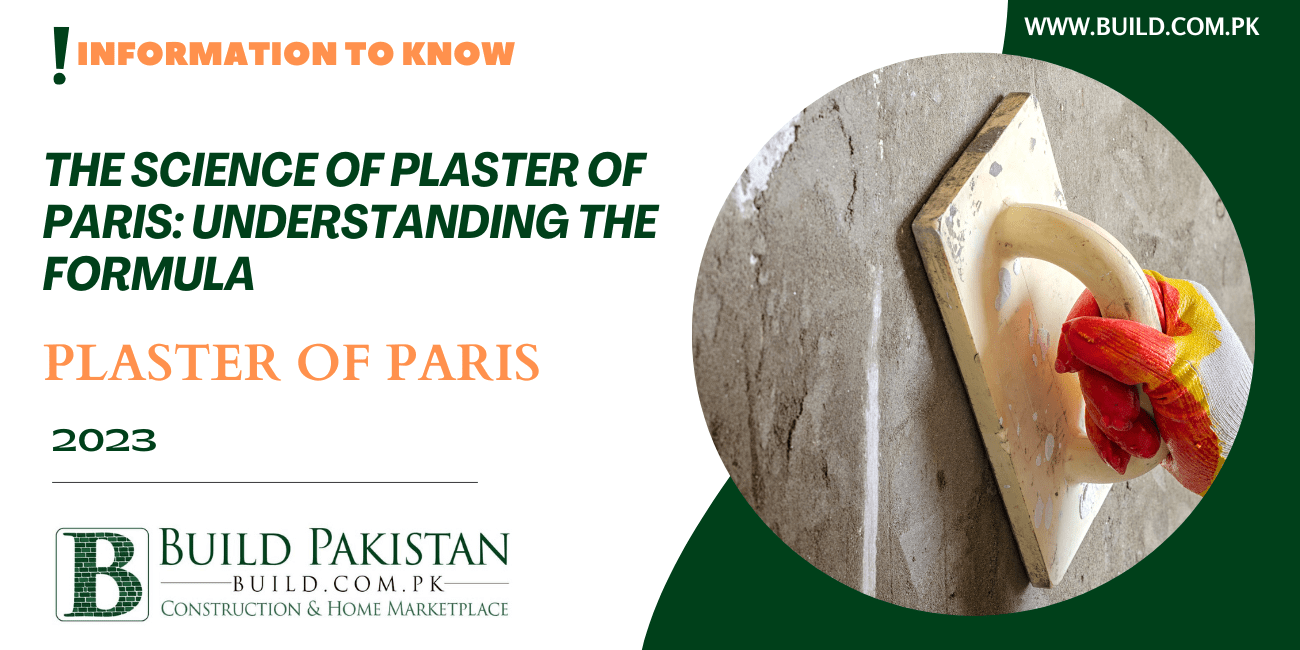The Science of Plaster of Paris: Understanding the Formula

Introduction:
Plaster of Paris is a popular building material that has been
used for centuries. It is a white powder made from gypsum that hardens when
mixed with water. It has a variety of uses, including creating decorative
mouldings, casts and sculptures, as well as repairing walls and ceilings. The
versatility and affordability of plaster of Paris make it a popular choice for
DIY enthusiasts and professional builders alike. In this blog, we will discuss
the plaster of Paris formula, its features, and its benefits.
Plaster of Paris Formula
The formula for plaster of Paris is relatively simple. It
consists of gypsum, which is a naturally occurring mineral, and water. When
gypsum is heated to a certain temperature, it loses its water molecules,
creating a fine powder. This powder is then mixed with water to create a paste
that can be shaped and moulded into various forms.

Features of Plaster of Paris
Versatility:
Plaster of Paris can be used for a variety of
applications from creating decorative mouldings to repairing walls and
ceilings. It can be moulded into intricate shapes and designs making it ideal
for creating unique and eye catching features in any space.
Hardness:
Once mixed with water, plaster of Paris hardens
quickly, making it ideal for creating durable and long-lasting structures. It
can also be sanded and painted, allowing for endless possibilities when it
comes to finishes and designs.
Affordability:
Plaster of Paris is an affordable building
material making it a popular choice for DIY enthusiasts and professional
builders alike. It is readily available at most hardware and building supply
stores, and can be easily mixed and applied with minimal tools and equipment.
Fire Resistance:
Plaster of Paris is a fire-resistant
material making it ideal for use in fire-rated applications. It can also act as
a thermal insulator, helping to keep rooms warm in the winter and cool in the
summer.
Benefits of Plaster of Paris
Durability:
Plaster of Paris is a durable material that
can withstand wear and tear over time. It is also resistant to moisture, which
can help prevent mould and mildew growth.
Aesthetics:
Plaster of Paris can be moulded into a variety
of shapes and designs, making it ideal for creating decorative mouldings,
cornices, and ceiling roses. It can also be painted and finished to match any
decor style.
Easy to Use:
Plaster of Paris is easy to mix and apply,
making it a popular choice for DIY enthusiasts. It can be moulded into shapes
and designs with minimal tools and equipment, and can be sanded and painted
once dry.
Cost-effective:
Plaster of Paris is an affordable building
material making it a cost-effective choice for builders and homeowners. It is
readily available and requires minimal tools and equipment to use.
Conclusion:
Plaster of Paris is a versatile and affordable building material that has been used for centuries. Its formula consists of gypsum and water, and it has a range of features and benefits, including versatility, hardness, affordability, and fire resistance. It is also durable aesthetically pleasing, easy to use and cost-effective. Whether you are a DIY enthusiast or a professional builder, plaster of Paris is a material that can help you create beautiful and functional structures that will stand the test of time.










